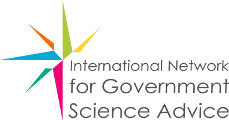Mission
INGSA provides a forum for policy makers, practitioners, academies, and academics to share experience, build capacity and develop theoretical and practical approaches to the use of scientific evidence in informing policy at all levels of government.
It shall operate through:
- Exchanging lessons, evidence and new concepts through conferences, workshops and a website;
- Collaborating with other organisations where there are common or overlapping interests;
- Assisting the development of advisory systems through capacity-building workshops;
- Producing articles and discussion papers based on comparative research into the science and art of scientific advice.
INGSA is committed to diversity, recognizing the multiple cultures and structures of governance and policy development. It is not intended as a lobbyist organization and does not seek to endorse any particular form or structure of science advice. INGSA shall operate under the general aegis of ICSU, with the Office of the Chief Science Advisor to the Prime Minister of New Zealand currently hosting the INGSA secretariat.
History
INGSA is the product of converging conversations, complementary ideas and parallel policy innovations. In 2012, a Nature commentary by Doubleday and Wilsdon struck a timely chord for many working at the Science-Policy interface. For Steven Wilson, then the Executive Director of the International Council for Science (ICSU), it was a call to action and he asked Sir Peter Gluckman, Chief Science Advisor in New Zealand to chair a working group to have an initial meeting on the issue in conjunction with the 2014 ICSU congress in Auckland, NZ. Together they assembled some of the world’s preeminent thought leaders – academics and practitioners – in the emerging field of science advice to government to develop an agenda for global discussion. The result was the Science Advice to Governments international conference held in Auckland NZ at the end of August 2014.
Attended by high level practitioners, academics, students and government officials alike, this conference made accessible key debates in the practice of science advice in a way that other global fora have not done. Over 40 countries were represented by over 220 delegates from all regions of the world, together with representatives of key international organisations. A full video record of the two day event is available here, and publications and guest blogs by participants are also available.
The Auckland conference ended with a resounding call for the formation of a network to continue discussion and promote the exchange of ideas and experiences, particularly in key areas such as:
- Critical analysis of the variety of mechanisms for science advice (both formal and informal), taking into account local contexts, cultures and histories;
- Capacity building for science advice, especially in developing economies;
- Science advice and the role of practitioners in the context of crises and emergencies;
- Planning for joint events and activities internationally.
In response, the conference steering committee was expanded, diversified and re-cast as a Network Development Group. NDG members, listed here, bring a wealth of knowledge and experience as well as strong links into a variety of scientific and policy communities within and across jurisdictions globally.
The NDG has taken on a convening and networking role in developing an inaugural slate of activities for INGSA, which is expected to be a loosely-knit association of individuals and organisations with interests in both the theory and practice of science advice. It is expected that it will be shaped and reshaped over time according to the arising needs and interests of INGSA affiliates, with working groups developing to take on targeted projects such as workshop planning and development of publications and other resource materials.
